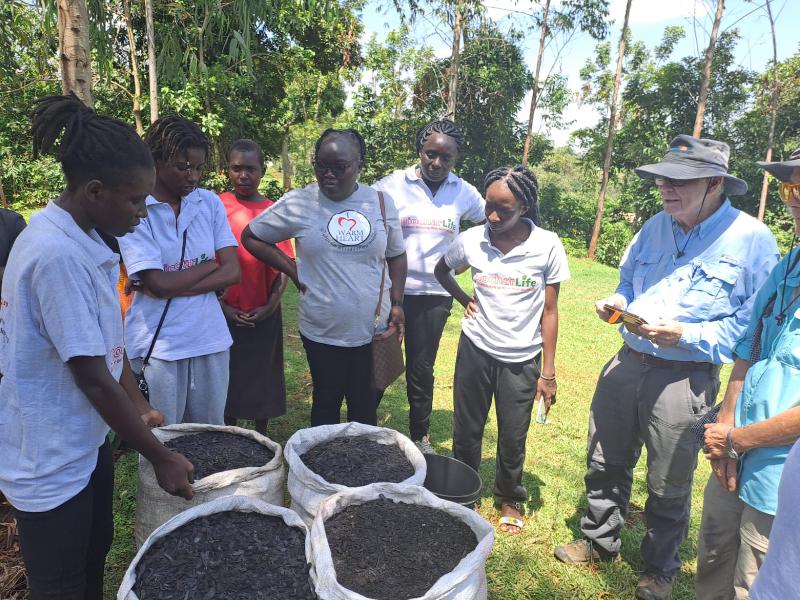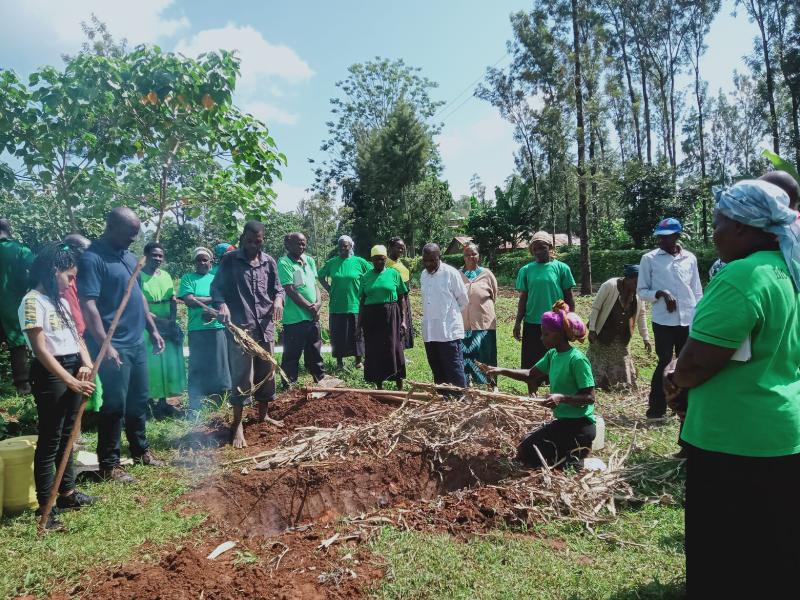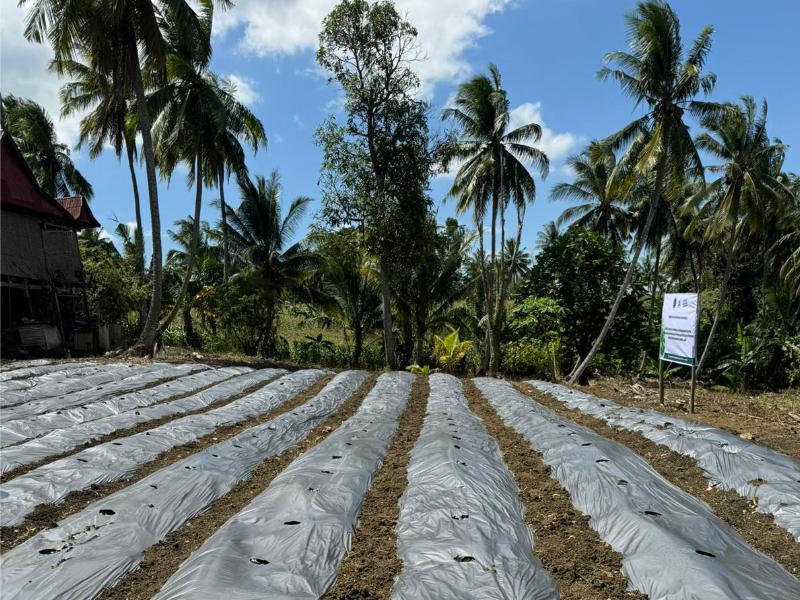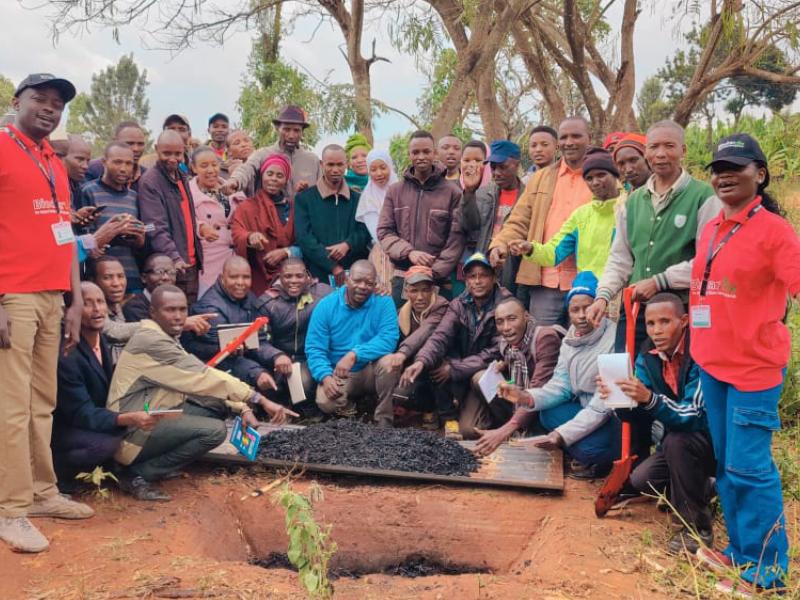
Smallholders and Smartphones
How PlantVillage and Biochar Life are Transforming Carbon Removal in East Africa
Climate change solutions often conjure images of cutting-edge technology, vast arrays of solar panels, and towering wind turbines. Yet, one of the most promising and scalable methods of carbon removal is much closer to the earth – and firmly rooted in the lives of smallholder farmers. In East Africa, a groundbreaking partnership between Biochar Life and PlantVillage is harnessing this potential, combining grassroots knowledge with advanced technology to address climate change at scale.
A Partnership Rooted in Community and Innovation
Three years ago, Biochar Life, a pioneer in biochar technology and carbon removal, sought a technological partner to enhance their operations. They discovered PlantVillage, an organization deeply experienced in leveraging artificial intelligence (AI) and mobile technology for agricultural solutions in Africa.
"Biochar Life were first movers in the space," explains Dr. David Hughes, founder of PlantVillage. "They helped educate others by openly sharing knowledge. Our partnership emerged naturally, driven by a shared belief in empowering smallholder farmers."
What makes this partnership unique is its powerful blend of social impact and technological innovation. Both organizations strongly advocate for community-led solutions, recognizing smallholder farmers' critical role in global carbon removal efforts.
Why Smallholder Farmers?
According to Dr. Hughes, smallholder farmers occupy a vast portion of land across the global South, especially in regions around the equator, which makes them strategically crucial to climate solutions.
"Smallholder farmers have the unique advantage of year-round growing seasons. They can continuously convert agricultural waste into biochar, creating the world’s largest carbon dioxide removal factory."
Indeed, the capacity for continuous, year-round biochar production could dramatically accelerate global carbon sequestration efforts. Biochar not only captures carbon but also enriches soil, enhancing crop yields and farmers' incomes, and directly improving livelihoods.
High-Tech Meets Ground-Level Experience
Understanding the importance of community participation, David and his team at PlantVillage reach over 15 million farmers a season in 12 countries across different media platforms, including TV, radio, SMS, app, the mobile app and in person, As part of their technology journey, PlantVillage has also developed The Biochar App, a science-based, transparent mobile platform that farmers use to document their biochar production and carbon sequestration activities.
"The Biochar App provides transparency and reliability, essential for customer trust," says Dr. Hughes. "It's also critical that it remains independent – not venture-capital backed – ensuring the data belongs to and benefits the community."
The app directly addresses the critical challenge smallholders face: verifying and selling carbon removal credits. It simplifies and legitimizes the recording and verification processes, empowering farmers to access carbon markets directly. For Biochar Life, the technology has been a lifeline for their verifier teams that use the app for collecting and verifying the data around biochar created and used, so they can register the amount of carbon that has been sunk.
Building Trust Through Global Standards
Central to the credibility of Biochar Life and PlantVillage's carbon removal initiatives is their adherence to the Global Artisan C-Sink Standard, established by Carbon Standards International (CSI). This standard guarantees rigorous, transparent, and scientifically validated measurement, reporting, and verification of biochar production and carbon sequestration. Alongside the Global C-Sink Registry, which transparently records and tracks verified carbon removals, stakeholders can confidently invest, knowing their contributions directly benefit communities and the climate.
Dr. Hughes emphasizes, "Transparency and independent verification through trusted global standards are essential. They empower communities and assure buyers and investors that their support is having a tangible, measurable impact."
Transformative Technology at Scale
PlantVillage’s technological approach goes beyond simple data collection. With AI integration, the app delivers educational content tailored to local languages and varying literacy levels. This holistic approach ensures the technology is accessible to everyone, from young tech-savvy farmers to older community members.
"We built PlantVillage as essentially a land-grant university in a phone," says Dr. Hughes, emphasizing the significance of democratizing knowledge. "Our AI systems operate offline, in local languages, and cater specifically to the needs of rural farmers."
This innovation means even remote villages can access high-quality agricultural knowledge and support – previously available only through formal education institutions.
The Vital Role of Community Involvement
For carbon removal projects to scale effectively, Dr. Hughes emphasizes the need for local workforce participation. Global carbon removal targets are ambitious – between 4 and 15 billion tonnes per year – and achieving them requires widespread community involvement.
"The workforce needed to scale carbon removal initiatives already exists across the equator, precisely where these projects are needed most. Affordable, low-cost technology significantly reduces the risk and costs associated with scaling these projects."
Biochar Life and PlantVillage are demonstrating the success of smaller, modular biochar systems, which contrast starkly with larger, more expensive carbon removal solutions that often run over budget and struggle with local acceptance.
Beyond Carbon: Co-benefits and Social Impact
This partnership isn’t just removing carbon – it's transforming lives. Farmers benefit from improved soil health, increased crop productivity, economic empowerment, and reduced deforestation. Despite these tangible benefits, community-based biochar projects often remain underfunded because they lack the outsized financial returns that attract large-scale capital investments.
"High-tech solutions attract capital due to potential large returns. Yet, community-focused biochar projects deliver profound, sustainable, and immediate benefits."
These co-benefits – economic stability, food security, and improved environmental health – underscore why investing in grassroots solutions can be a strategic and ethical decision for stakeholders.
Future Outlook: Optimism and Innovation
Looking forward, Dr. Hughes expresses optimism about the future of tech-driven carbon removal solutions, especially in East Africa, where modular technologies and innovative solutions continue to evolve rapidly.
"Methane management is becoming easier with innovations from companies like Carboneers," Dr. Hughes notes. "Additionally, the biochar process generates usable heat, further enhancing its economic viability and ecological impact."
As PlantVillage continues expanding globally, Dr. Hughes underscores the critical need for transparency, trust, and evidence-based solutions. His dual role as an academic allows him to navigate industry complexities, advocating for genuine impact over-inflated claims.
A Call to Action
Dr. Hughes has a clear message for those considering an investment in carbon removal:
True scale requires cost-effective solutions that simultaneously enhance local communities' economic and food security. High-tech, single-purpose carbon removal industries alone won't meet global targets. Community-driven approaches, like those pioneered by Biochar Life and PlantVillage, are essential."
In East Africa, the partnership between Biochar Life and PlantVillage is more than a carbon removal story—it’s a narrative of resilience, innovation, and genuine community empowerment. By leveraging the potential of smallholder farmers through accessible technology, they offer a blueprint for meaningful climate action worldwide.




